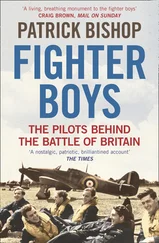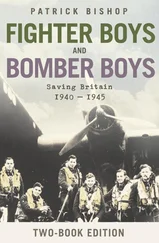Some of those taking part in the raid had sensed disaster from the beginning. Sergeant John Dobson, only nineteen years old but already one of 218 Squadron’s most experienced pilots, was woken at 6 a.m. on the morning of 7 November, an unusually early hour that suggested that a daylight operation was planned. Half-asleep, crotchety, some of them mildly hungover, the squadron slouched to the briefing room. Dobson sat down and his crew grouped themselves on the chairs around him. There was ‘no greeting, just a plain and dismal silence’. He pulled out his cigarettes from his pyjama pocket and ‘exercised the Skipper’s prerogative of offering each crew member a fag. A sharp, grating sound, puff, puff, puff and then silence once more. The whole room was silent and pent up with a fierce concentration. No celluloid sallies here, no carefree chatter which film-struck spinsters associate with an operational briefing … we were all in the bluest of blue funks so that no one dare speak for fear of voicing with his eyes or gruffness his innermost, uppermost fear of the unknown. More especially today it was felt, because of the unusual hour, which [preyed] heavily on the superstition of fliers.’
Wing Commander Kirkpatrick climbed the three steps to the dais. He was a pre-war regular and his crews liked and trusted him, ‘just the man for any job which would get this damned war over quicker,’ in Dobson’s view. The order of the day that he read out was unlike any other the audience had previously heard. Instead of being given a routine railway junction or gasworks to aim at, the squadron’s mission was directed against a factory twenty miles south-east of Berlin which was believed to be researching experimental weapons. The target was to be completely demolished ‘at all costs’. Should the bombs fail they were to strafe the factory at low level. The success of the mission, he stressed, would obviate great loss of life in the future.
The ‘met’ reports were read out which predicted three storm fronts and blanket cloud over the continent, though this might clear to eight-tenths cover by the time the aircraft arrived giving the captain the option of bombing through the holes in the murk or risking flying below it. The wing commander then went on to confirm what Dobson’s gut had told him. The heavy bomb load meant that it would be touch and go whether there was enough fuel to get them back. The squadron sat ‘entranced and dumb-founded as the words ate like acid into their brain, numbing all senses but that awful emptiness of fear in the stomach.’ They spent the rest of the morning trying to lose themselves in ‘doing those hundred and one … things to keep the mind from death.’ The music on the mess gramophone did nothing to lighten the gloom. Even the liveliest tunes were simply a reminder of a world they might never return to.
At lunch Dobson could not bear to eat. He slipped away early to look over his Wellington, K-Kate. It was raining heavily but he ‘did not pause to collect a greatcoat, feeling somehow that it was superfluous and not in keeping with the dread feeling all around …’ But the weather provided a spurt of hope. ‘I gazed upwards at the lowering clouds whilst the increasing rain stung my pupils and made tiny, salty tears run into my face and aggravated the soreness of my cheeks where I had shaved. Could it be … that ops were scrubbed?’
He ran back to the mess where he met his crew who told him that ops were still very much on. They were coming to the end of their tour and shared his fear of what lay ahead. Speaking on behalf of the rest, the navigator informed Dobson they had decided ‘we are certainly not going to chuck our lives away on this damned death but no glory stunt.’
Dobson went to tell the CO, who came straight to the point. Was Dobson going to join the mutiny? He replied, ‘not without certain trepidation, “no sir.” To see the relief shining in his eyes … was gratitude enough but he rose and patted my shoulder gently, almost fatherly, and said, “Thank you, Dobson.”’
He was allotted a new crew and learned to his dismay that they were ‘sprogs’ straight out of training and virgins when it came to operational flying. He was further alarmed by the discovery that the man flying as ‘second dickey’ or assistant pilot, was an Australian. The prevailing superstition had it that Australians were prone to disaster on their first show.
Dinner was even more depressing than lunch. When they reached the aircraft ‘the rain was falling in an ever-increasing tempo, drumming like bullets on the fuselage.’ Dobson’s misgivings were well-founded. Before they had even crossed the English coast they came under fire from a German intruder. He dived into cloud to escape, emerging in time to see the sky in front twinkling with red stars as the first coastal flak batteries opened up. Dead ahead there was a huge sheet of flame as a bomber exploded. Then it was their turn. Dobson threw the Wellington this way and that ‘but more flak concentrated on us until it seemed as though the whole sky was a mass of flaming, eye-scarring bursts. And the smell like the smell of death itself; cloying, foetid, lingering in … nostrils wide with fear.’ A heavy burst plunged the Wellington into a downward spiral. ‘Completely out of control isn’t fun at any time but in a welter of up-coming flak our predicament was terrible. The crew were in a frenzy, yelling and screaming over the intercom.’ They levelled out at 3,200 feet but were now pinned against the sky by searchlights. Dobson felt ‘the intensity of the beam on one’s face simply sapped the strength from one … the eyes burned like all the fires of hell as I strove to penetrate the terrific vista of light.’
Eventually they left the searchlight batteries behind. They crossed the Dutch border and set course for their objective. Long before they reached Berlin they could see the flak barrage glowing above it. Their target was to the south. As they turned away, two night-fighters bore in on them from ahead and below, riddling the fuselage with tracer. Dobson, a former Hurricane pilot, threw the Wellington into a violent turn, a manoeuvre which had the lucky effect of bringing one attacking Messerschmitt into the front gunner’s sights, just as he was climbing away. ‘Bits began to fly from the fighter as the murderous hail of bullets from the two Brownings, so ably wielded, bit into his fabric, his engines and his tanks … the last we saw of him he was spinning down in a death dive and no pilot got out.’ The other fighter was shaken off in the turn.
They went on. Dobson had to drop through a thick layer of clouds, ‘so solid, so absolutely like a new earth that one wanted to step out on them and walk,’ to have any chance of finding the target. By the time the Wellington emerged only 2,000 feet were showing on the altimeter. Ahead they could see parachute flares, and artillery flashes lit up the target area. Bert Faltham, the navigator-cum-bomb-aimer now took charge. As he led them in the flak increased in intensity until ‘the sky around and ahead was a vast, twinkling maelstrom of light.’ At last Faltham called out, ‘Bombs gone Skip!’ and the Wellington’s 3,500-pound load fell away. Dobson climbed, taking ‘what seemed like a leaden century’ to reach 18,000 feet where he levelled off.
About an hour and a half from home Dobson allowed himself to start thinking that they might just make it. Then the sky ahead reddened with a flak barrage which flared up and died away before he could identify its location. Suddenly there was ‘a terrific crack, like a whip going hard against naked flesh, whilst a gale roared through the hole the flak had created … a nucleus of bursts held us in their thrall, smashing into the fuselage at every point, tearing huge gaps …’ For the next forty-five minutes Dobson fought to keep the aircraft steady but it started to slide into what seemed like a final descent. He gave the order to bale out. ‘One by one the crew filed past my seat and dropped through the opening at my feet. When the last one … had vanished I trimmed Kate, tail heavy, so that in a few moments her nose would come up and she would spin in to her complete destruction. Then, still holding the stick, I slid from my seat and as the aircraft swayed slowly backwards I fell forward through the hole in the manner approved. The time was 05.00 … Height 1,500 feet.’ 12
Читать дальше












